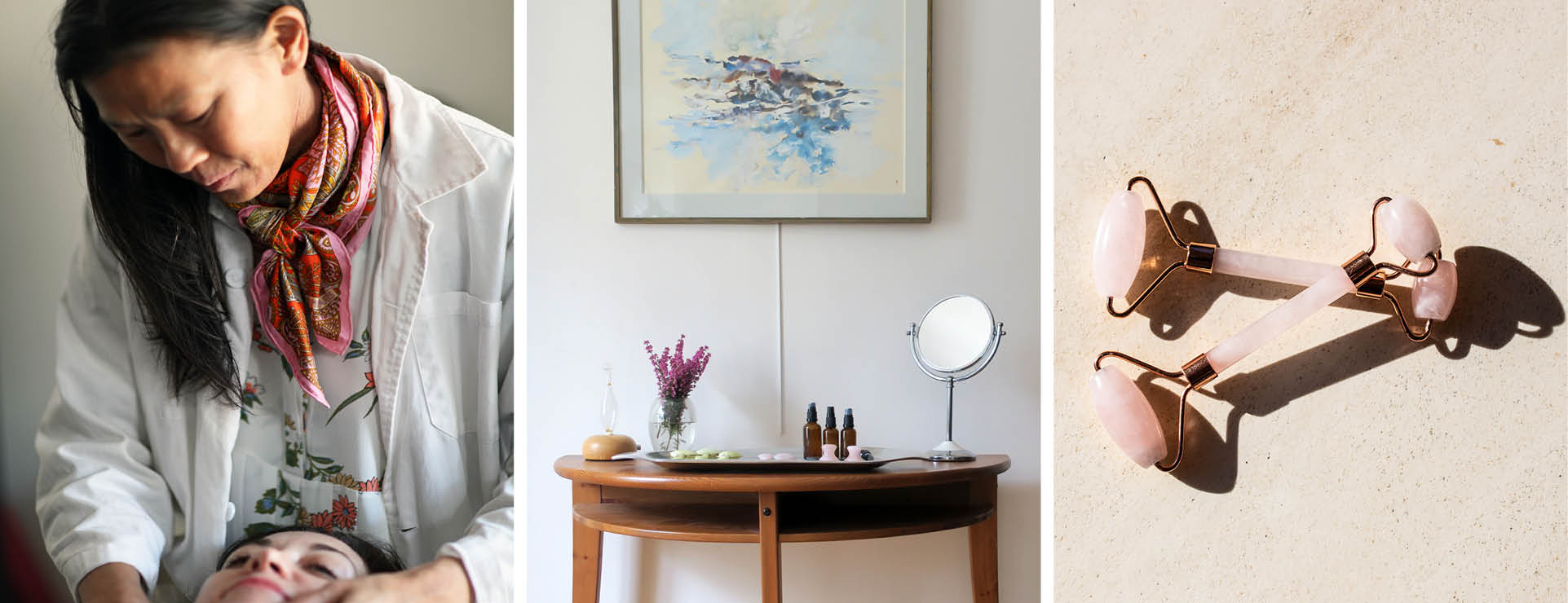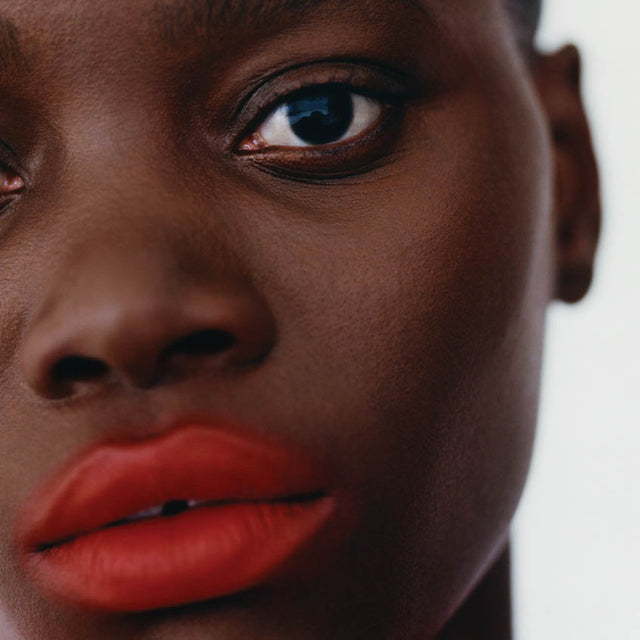For years, the term “French Girl” has been synonymous with cool, effortless and impossibly chic. But the images and influencers used to illustrate the concept across heavily-trafficked fashion websites and to lure beauty-obsessed viewers through to TikTok tutorials, are severely lacking in diversity. Writer Sophie Kemp explores the French Girl myth and introduces us to several women who cast a new (and even chicer) light on what it is to be French.
A French girl and a French Girl are not the same thing. A French girl can be any woman who is French. She doesn’t fit into a box. She can be any race, body type, or sexual orientation. She can exist in any class milieu. She can have any number of passions. There isn’t one French girl.
The French Girl, on the other hand, is a trap, and it does mean something specific. Spend any time on the Internet searching “French Girl Beauty,” and you’ll see photos of women with poreless skin looking effortlessly sexy. If you look up “French Girl Style,” you’ll see article after article about where to get the best airy Jane Birkin peasant blouses (no shade to Jane!), as well as link after link of where to get slouchy jeans, basket bags, Stan Smiths, leather jackets, and striped shirts. These articles get sillier: look no further than “French Girls Wear White Jeans,” “French Girl Engagement Rings,” “French Girl Bangs,” “French Girl Pregnancy,” “How to Work Out Like a French Girl.” You get the idea. There’s a whole French Girl industry, one full of coffee table books, skincare routines, and cookbooks. Who is this for? Who are these French Girls? It would seem like once again, we’ve been met with an untenable goal for women to strive towards.
This mythical French Girl exists, but she doesn’t represent all French women. She’s thin, white, probably smokes, always says yes to a third glass of wine, doesn’t work out, and remains gorgeous. She’s a supercut of Anna Karina and Brigitte Bardot. She has opinions on Emile Zola, she has an amazing work life balance. She’s a Pygmalion, a composite of (mosty) male desire, a product of capitalism. She can be whatever you want her to be. Tyler McCall, the editor-in-chief of Fashionista, shares that the French Girl bubble has burst, but remnants of it continue to exist and influence the way we shop and live. “I do think that this sort of mythology that we've created around like the chic French woman can be really limiting or really damaging,” she says, “I think we're a little bit past it now, but there was a time I remember when there were so many books [about it]. One that I really hate was like “French women don't get sad.” McCall also shares that the media’s conception of the French Girl is Americanized. It’s also inherently Parisian.
There is no one experience or woman who is representative of the French Girl experience. It’s impossible to pin down who French women actually are. One woman’s experience of being French is inherently different from another woman’s experience of being French.
Here, we’ve highlighted three women who work in the worlds of beauty, wellness, and fashion, who also happen to be French or live in a francophone country.

Meet Brussels-based Noelly Michoux.
Michoux is the founder and CEO of 4-5-6, a company dedicated to creating personalized skincare for people with darker skin tones, aka types 4,5 and 6 of the Fitzpatrick skin phototype. Michoux started her company because she found it difficult—if not impossible—to find beauty products in France as a Black woman. Michoux’s experiences with beauty as a French woman have shifted and changed throughout her entire life. “I am a French woman, but with origins, and that means something in the world but in France that means something very specific, you kind of have to get used to having split identity. It means something in terms of the way you look and the way you're represented in society,” she says. “Beauty for me has been a process. I went from not loving myself and feeling invisible and feeling and seeming like an outsider to a place where I can stand in society and say yes this is me.” Now, Noelly feels the most like herself without makeup. She feels confident when she can just walk out the door, and feel gorgeous just the way she is.

Leslie Sidora is a model and an influencer based in Los Angeles, originally by way of Normandy.
On her Instagram, she posts pictures of her outfits. She wears everything from eye-catching Givenchy gowns and Prada bags to simple workout outfits. Her aesthetic is loud and unafraid. She’ll do bold beauty looks and bare faced looks, and she always looks confident. Sidora’s journey to where she is now, a successful model, was a process. She’s plus sized, and for so long she felt like her only options were at big fast fashion retailers. “It’s important to broadcast how cool French girls are, especially on the plus-sized side of things,” she says. As for what French Girl beauty looks like for Sidora? It’s all about good skincare. “I take really good care of my skin,” she says, “I think it shows in my style.”

Elaine Huntzinger grew up all over the place, but has called France home for close to two decades.
She’s an acupuncturist, currently based in Paris, and meets French girls every day through her work. For Huntzinger, the French Girl stereotype encompasses some French women, usually the ones who live in the more conservative parts of Paris, but it’s not everyone. The French girls she interacts with every day have fun with the way they dress. They’re messy and artistic.“I find that the Parisiens I know seem to be more poetic in how they dress,” she says, “They mix in match with a poetic intention.” French girl beauty for Huntzinger has everything to do about skincare. She has sensitive skin, so she doesn’t wear makeup. She’s spent years perfecting her routine, which now comes down to a double cleanse, copper peptides, an occasional dab of Lotion P50, toner essence, and a little cream.




